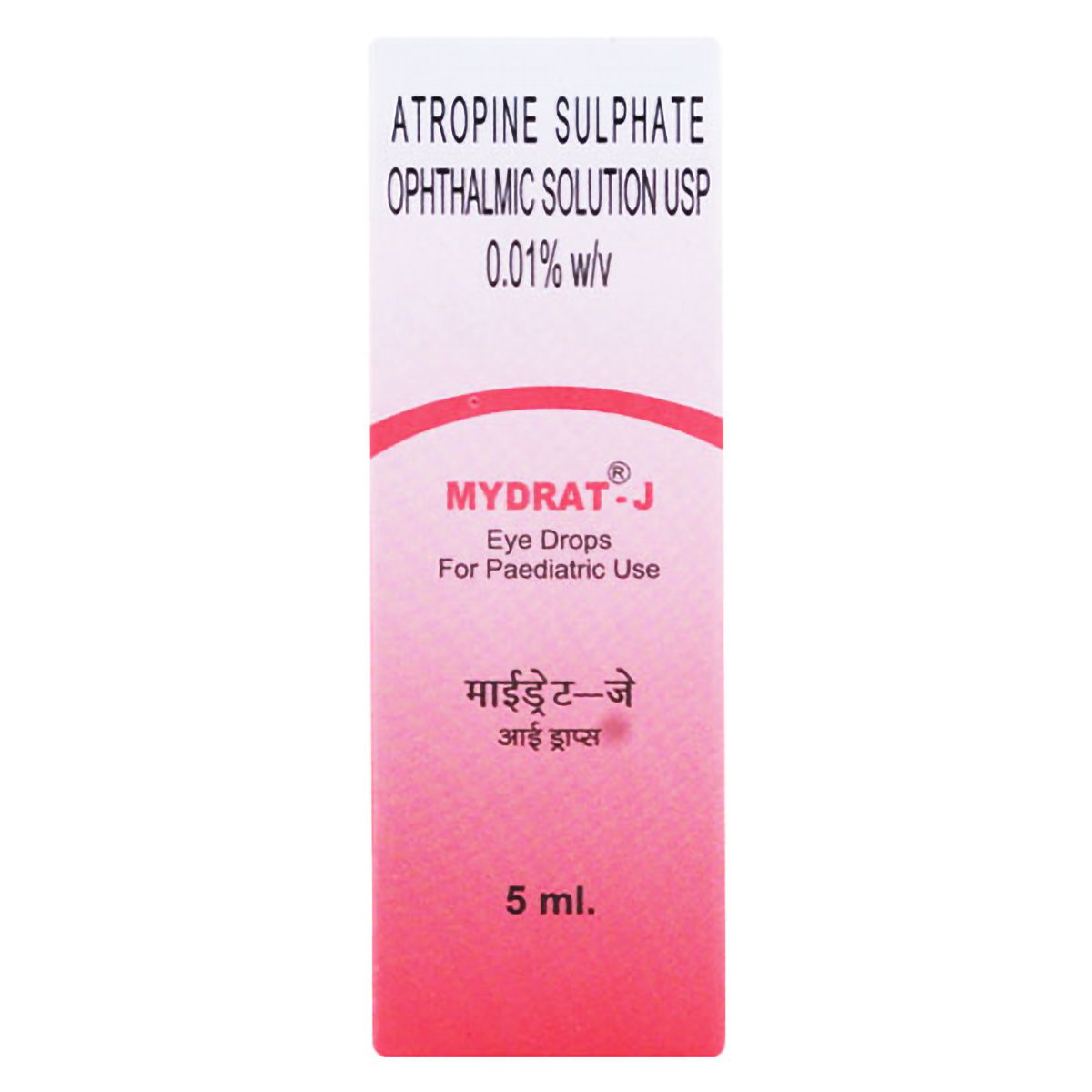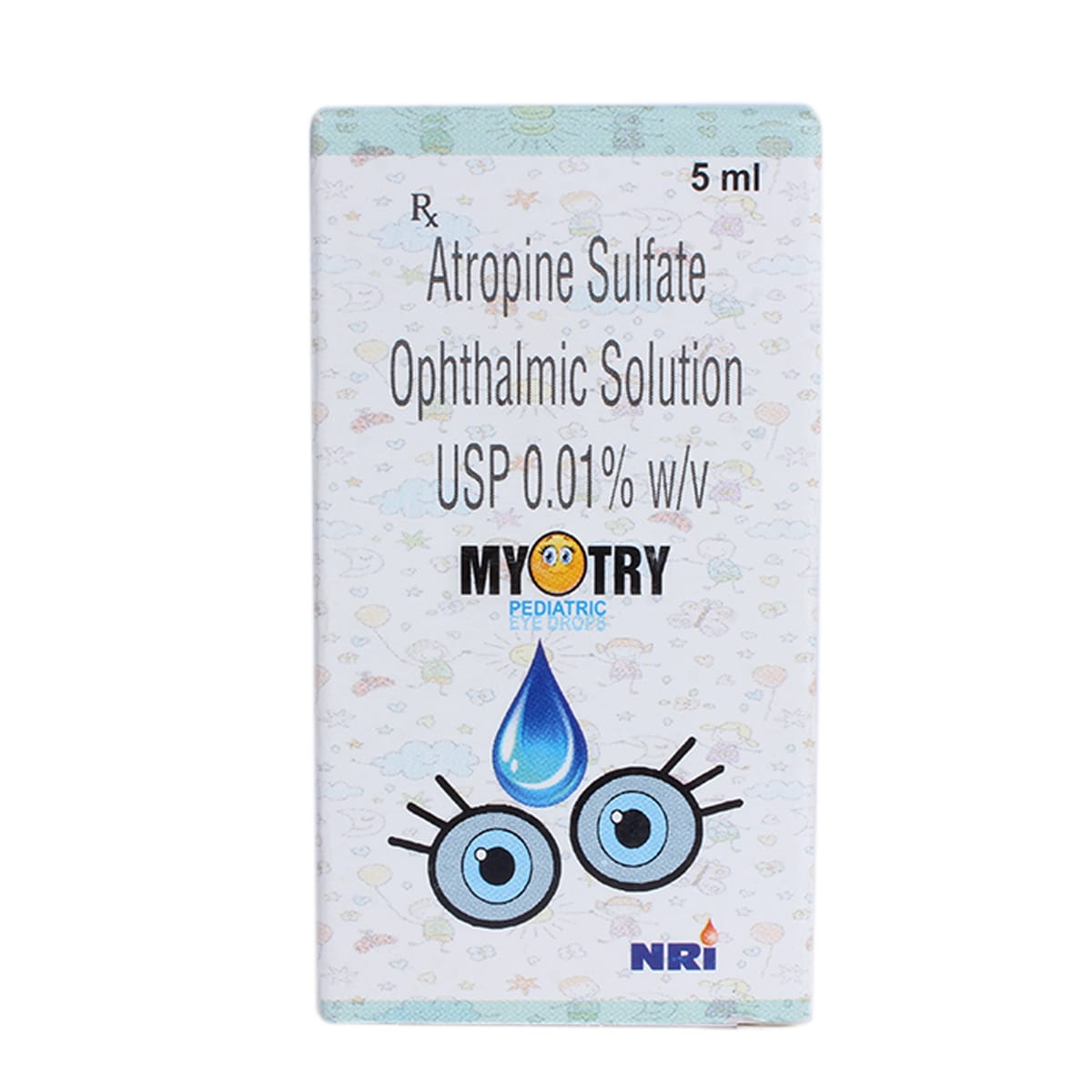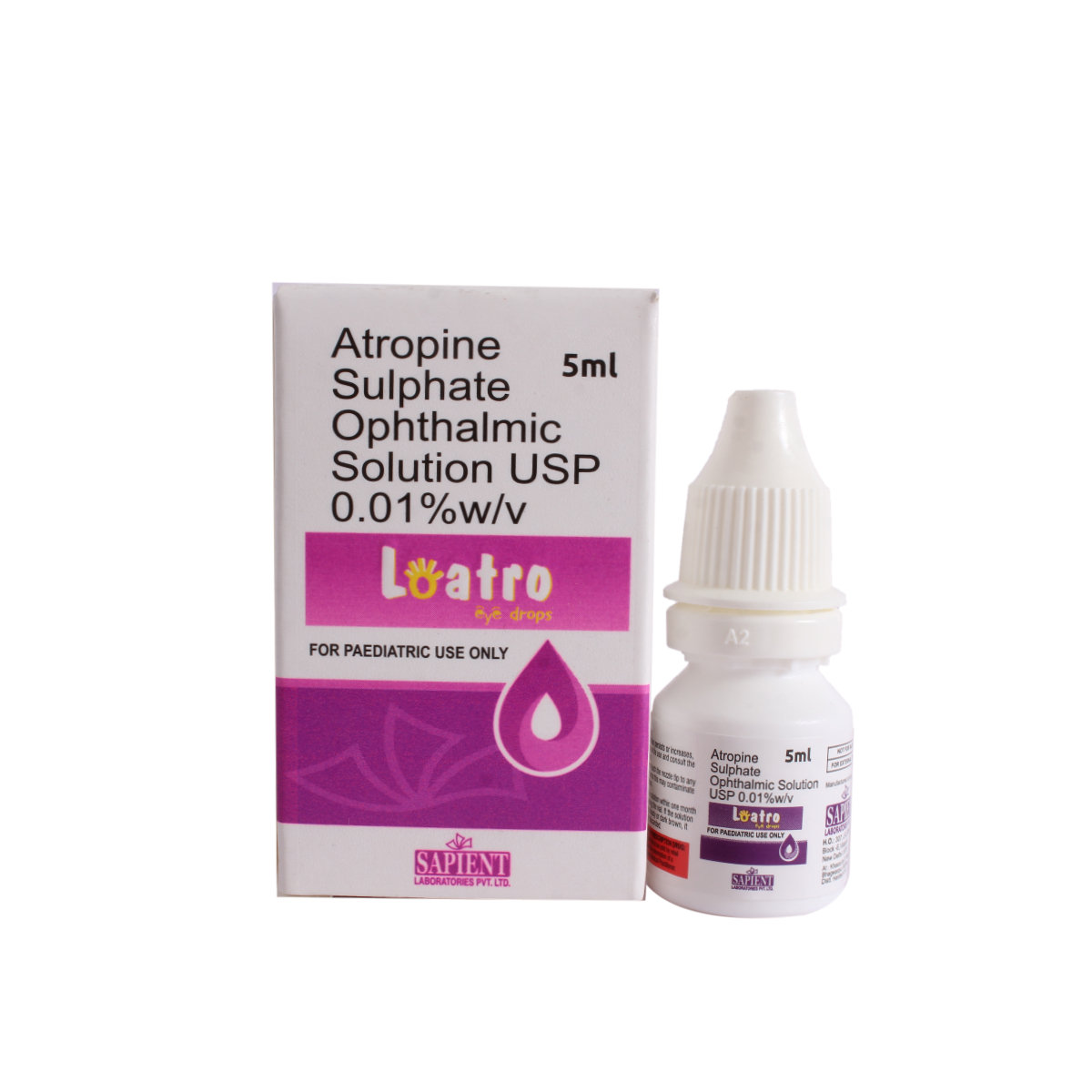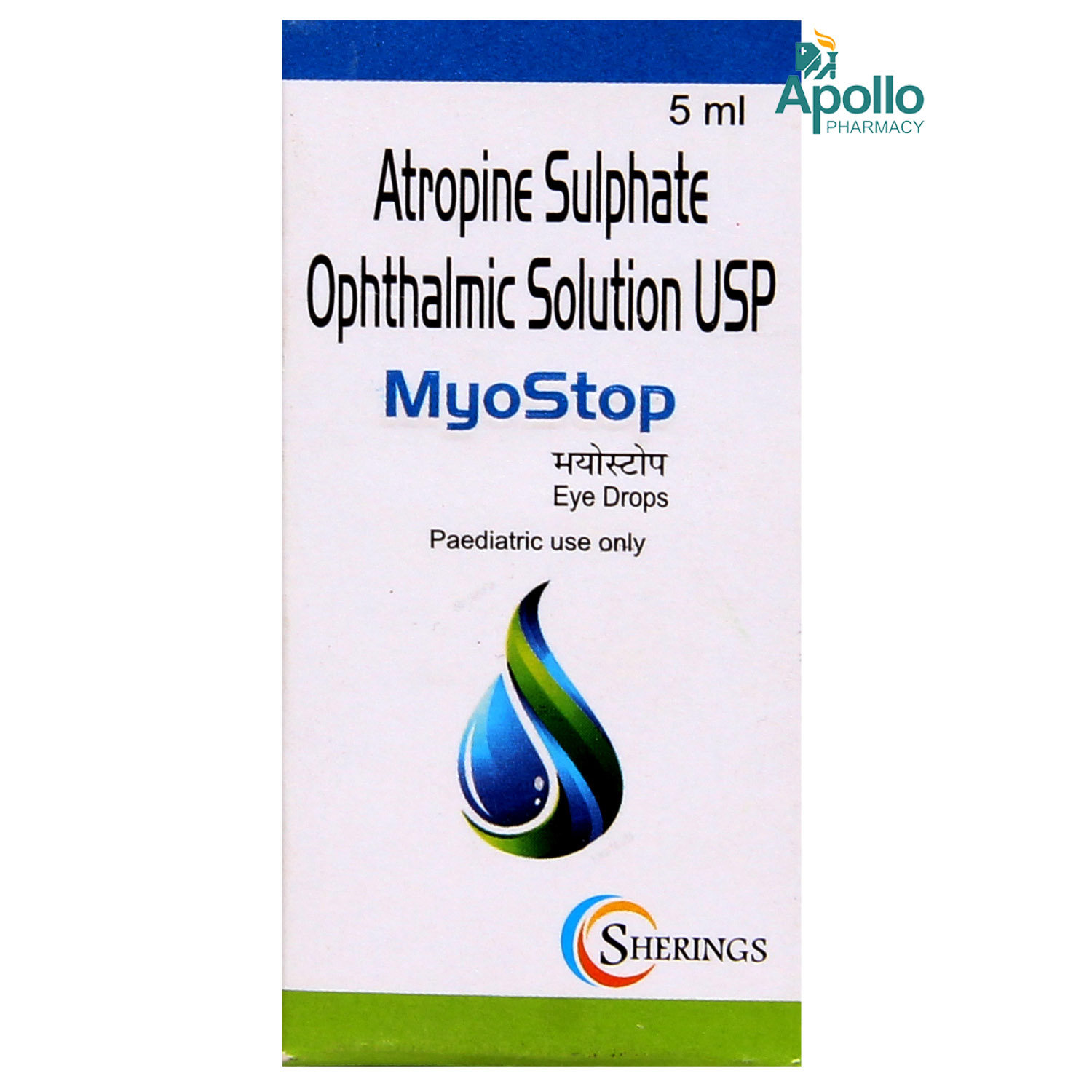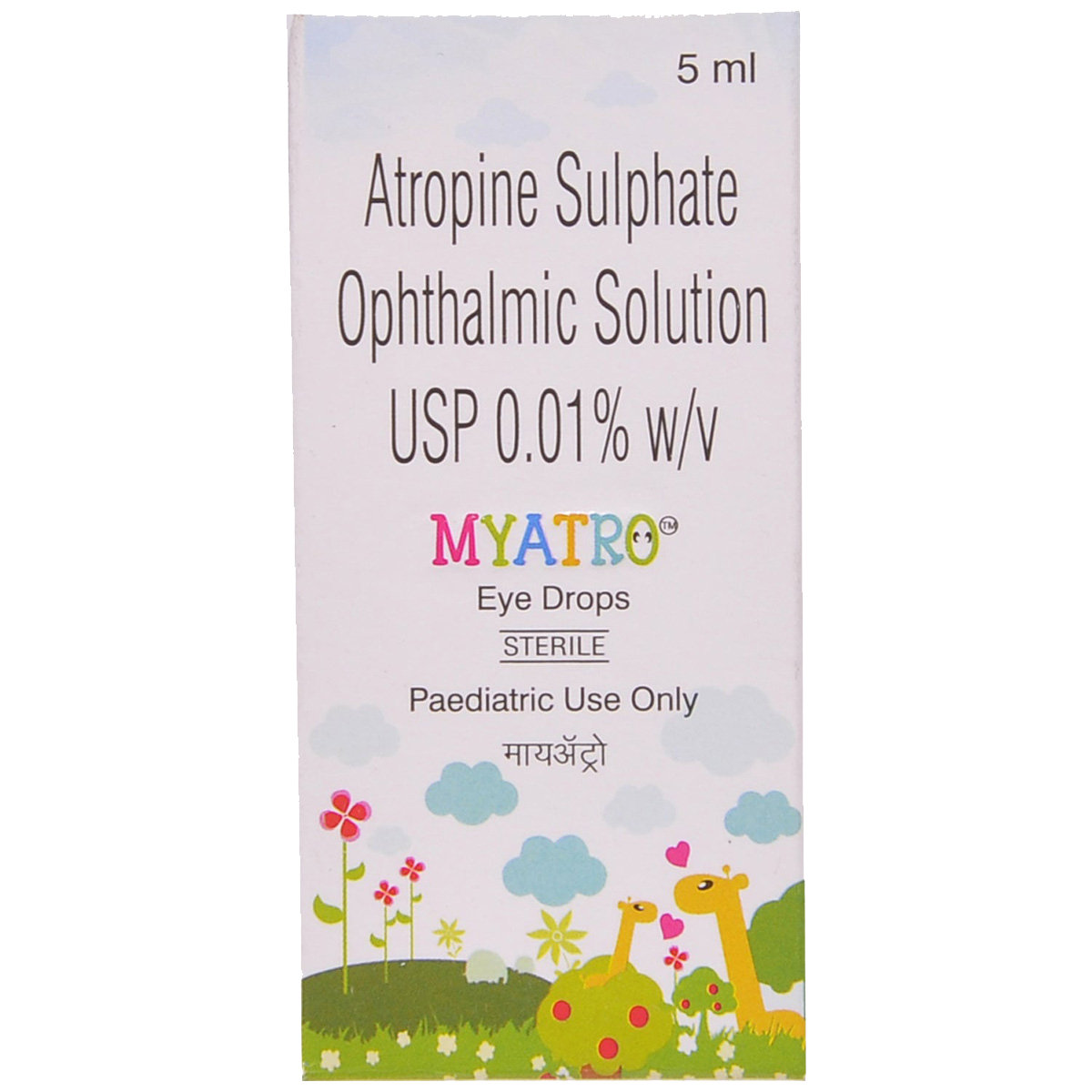- Home
- Atropia Paediatric Eye Drops 5 ml
Atropia Paediatric Eye Drops 5 ml Substitute
Atropia Paediatric Eye Drops 5 ml Substitute
Medicine Composition:
ATROPINE-0.01%W/VAll Substitutes & Brand Comparisons
RX
Atrop-PD Paediatric Opthalmic Solution 5 ml
Aurolab
₹150
(₹30.0/ 1ml)
14% CHEAPERRX
Votatrop 0.01% Eye Drops 5 ml
Votano Pharmaceuticals
₹182.5
(₹32.86/ 1ml)
6% CHEAPERRX
Mydrat-J Eye Drops 5 ml
Jawa Pharmaceuticals India Pvt Ltd
₹190
(₹34.2/ 1ml)
2% CHEAPERRX
Out of StockAtropia Eye Drop
₹190
(₹34.2/ 1ml)
2% CHEAPERRX
Out of StockAtrobis 0.01% Paediatric Eye Drops 5 ml
Eopia Laboratories Pvt Ltd
₹178.13
(₹35.63/ 1ml)
1% COSTLIERRX
Out of StockAtrolite Eye Drop
Synovia Life Sciences Pvt Ltd
₹200
(₹36.0/ 1ml)
2% COSTLIERRX
Out of StockMyokid 0.01% Eye Drop
Raymed Pharmaceuticals Ltd
₹200
(₹36.0/ 1ml)
2% COSTLIERRX
Myotry Pediatric Eye Drops 5 ml
Nri Vision Care India Ltd
₹206
(₹36.26/ 1ml)
3% COSTLIERRX
Out of StockMyopin Pead Eye Drops 5 ml
Appasamy Ocular Devices Pvt Ltd
₹205
(₹36.9/ 1ml)
5% COSTLIERRX
Loatro Eye Drop 5 ml
Sapient Laboratories Pvt Ltd
₹209
(₹37.62/ 1ml)
7% COSTLIERRX
Atroped 0.01% Paediatric Eye Drops 5 ml
Sunways (India) Pvt Ltd
₹191
(₹38.2/ 1ml)
8% COSTLIERRX
Atrokid Paediatric Eye Drops 5 ml
Centaur Pharmaceuticals Pvt Ltd
₹220
(₹39.6/ 1ml)
12% COSTLIERRX
Myostop Eye Drops 5 ml
Austrak Pvt Ltd
₹234
(₹42.12/ 1ml)
19% COSTLIERRX
Out of StockAtrosoft Eye Drops 5 ml
Optho Life Sciences Pvt Ltd
₹218.5
(₹43.7/ 1ml)
24% COSTLIERRX
Myatro 0.01% Eye Drops 5 ml
Entod Pharmaceuticals Ltd
₹258
(₹46.44/ 1ml)
32% COSTLIER

When Should You Consider Switching from Atropia Paediatric Eye Drops 5 ml?
Patients may explore substitutes in the following scenarios:
- High monthly cost of Atropia Paediatric Eye Drops 5 ml
- Non-availability in local pharmacies
- Generic recommendation by a doctor
- Side effects or better tolerability with alternatives
What to Know Before Switching
Before you switch from Atropia Paediatric Eye Drops 5 ml to another medicine, here are some important points to keep in mind:
Same salt, different brands:
Most substitutes contain the same active ingredient - ATROPINE-0.01%W/V, but the fillers, coating, or manufacturing quality may vary slightly.
Consult your doctor first:
Even if the salt is the same, your doctor can confirm if the substitute is right for your condition, dosage, and health history.
Watch out for allergies or reactions:
Some people may react differently to certain brands due to inactive ingredients. If you notice any side effects, inform your doctor immediately.
Price ≠ effectiveness:
A lower-priced substitute doesn't mean it's less effective. Many generic medicines work just as well as branded ones.
Check the dosage form and strength:
Always match the substitute’s strength (e.g., 5mg, 10mg) and form (tablet, capsule, syrup) with what your doctor prescribed.
Uses
Atropia Paediatric Eye Drops 5 ml is used in the treatment of eye conditions involving inflammation, muscle paralysis, and diagnostic procedures. The detailed uses of Atropia Paediatric Eye Drops 5 ml are as follows:
- Treatment of uveitis or iritis: Atropia Paediatric Eye Drops 5 ml reduces inflammation and pain in conditions affecting the middle layer of the eye.
- Management of cycloplegia: Atropia Paediatric Eye Drops 5 ml is used to paralyse the ciliary muscle, allowing accurate measurement of refractive errors.
- Control of myopia: Atropia Paediatric Eye Drops 5 ml is used in certain cases to reduce the progression of near-sightedness.
- Treatment of amblyopia: Atropia Paediatric Eye Drops 5 ml improves vision in a weaker eye by temporarily blurring vision in the stronger eye.
- Pupil dilation for examination: Atropia Paediatric Eye Drops 5 ml is used to widen the pupil, allowing better visualisation of the inner structures of the eye.
- Support in eye surgery preparation: Atropia Paediatric Eye Drops 5 ml is used to relax eye muscles and dilate the pupil before specific ophthalmic procedures.
Medicinal Benefits
- Atropia Paediatric Eye Drops 5 ml belongs to a group of medicines called mydriatics and cycloplegics, used to treat uveitis or iritis (inflammation of the eye) and myopia (nearsightedness).
- Atropia Paediatric Eye Drops 5 ml is also used before specific eye examinations to dilate the pupil, aiding in the diagnosis of eye problems such as blurred vision in children under 6 years old and in children with convergent strabismus (also known as cross-eyes or squint).
- Atropia Paediatric Eye Drops 5 ml relaxes the muscles in the eye, thereby making the pupil of the eye appear larger. This makes it easier for an eye examination.
- Atropia Paediatric Eye Drops 5 ml reduces pain and allows the inflamed part of the eye to rest and recover by relaxing the eye muscles.
- It is also indicated for cycloplegia (paralysis of the ciliary eye muscle), mydriasis (dilation of the pupil), and for the penalisation of the healthy eye in the treatment of amblyopia (decreased eyesight due to abnormal vision development).
FAQs
The substitutes of Atropia Paediatric Eye Drops 5 ml contain the same active salt(s) - ATROPINE-0.01%W/V. However, they may differ in price, manufacturing quality, and inactive ingredients. Speak to your doctor to find a suitable option.
Switching to a generic substitute medicine in the place of Atropia Paediatric Eye Drops 5 ml is often possible if it has the same salt, strength, and dosage form. But always check with your doctor before making any changes to your medication.
Generics versions of Atropia Paediatric Eye Drops 5 ml are typically more affordable because they don’t include the original brand's research, development, and marketing costs. They contain the same active ingredient and are approved for safety and effectiveness.
Most people don’t notice any difference. However, some may react to different fillers or coatings. If you notice any unusual symptoms after switching, consult your doctor.
Make sure the new medicine has the same active salt, strength, dosage form. Always confirm the change with your doctor or pharmacist.
Substitutes of Atropia Paediatric Eye Drops 5 ml meet the same safety and efficacy standards as Atropia Paediatric Eye Drops 5 ml, but small differences in absorption or formulation can exist. A doctor can help you choose the right one for your needs.
Yes. Substitutes of Atropia Paediatric Eye Drops 5 ml may vary in color, size, or shape due to differences in manufacturing and branding, but this does not affect how they work.
Yes, it’s generally safe to switch between multiple substitutes of Atropia Paediatric Eye Drops 5 ml if they have the same salt and strength. However, always inform your doctor so they can monitor how your body responds.
Yes, many people safely use substitutes of Atropia Paediatric Eye Drops 5 ml for long-term treatment. Just ensure it’s done under medical supervision.
If your symptoms stay under control or lab results remain stable, the substitute for Atropia Paediatric Eye Drops 5 ml is likely working well. Regular follow-ups with your doctor are important.
Absolutely. Even with the same salt, small differences can affect how your body responds when switching from Atropia Paediatric Eye Drops 5 ml to its substitute. Always consult your doctor before switching.
Atropia Paediatric Eye Drops 5 ml is used to treat uveitis or iritis (inflammation in the eye), myopia (near-sightedness), cycloplegia (paralysis of the ciliary eye muscle), mydriasis (dilation of the pupil), and the penalisation of the healthy eye in the treatment of amblyopia (decreased eyesight due to abnormal vision development).
Atropia Paediatric Eye Drops 5 ml relaxes the muscles in the eye, thereby making the pupil of the eye appear larger. This makes it easier for an eye examination. Atropia Paediatric Eye Drops 5 ml reduces pain and allows the inflamed part of the eye to rest and recover by relaxing the eye muscles.
Do not stop using Atropia Paediatric Eye Drops 5 ml without consulting your doctor. Continue using Atropia Paediatric Eye Drops 5 ml for as long as your doctor has prescribed it. If you experience any difficulty, consult your doctor.
Atropia Paediatric Eye Drops 5 ml might cause blurred vision, which might last for several hours. So, avoid driving or operating machinery until your vision is clear to prevent any mishap.
Atropia Paediatric Eye Drops 5 ml might discolour soft contact lenses. Therefore, do not wear contact lenses while using Atropia Paediatric Eye Drops 5 ml. Remove contact lenses before using Atropia Paediatric Eye Drops 5 ml and put them back 15 minutes after using Atropia Paediatric Eye Drops 5 ml.
Dry mouth may be a side effect of Atropia Paediatric Eye Drops 5 ml. Limiting caffeine intake, avoiding smoking and mouthwashes containing alcohol, drinking water regularly, and chewing sugar-free gum or candy may stimulate saliva and prevent mouth dryness.
Consult your doctor before using other eye medications along with Atropia Paediatric Eye Drops 5 ml as they might delay the absorption of Atropia Paediatric Eye Drops 5 ml.
Atropia Paediatric Eye Drops 5 ml can cause sensitivity to light and blur your vision. To stay safe, wear sunglasses, avoid driving or doing things that require clear vision, don't touch your eyes, and follow your doctor's instructions. If you experience any issues, consult your doctor.
Atropia Paediatric Eye Drops 5 ml is not recommended if you are allergic to any of its components or if you have closed-angle or narrow-angle glaucoma.
Yes, atropine can cause blurred vision. It dilates your pupils, making it difficult for your eyes to focus. The blurred vision usually goes away after the atropine wears off.
Talk to your doctor if you have a severe headache, fast heartbeat, trouble breathing, nausea, vomiting, blurred vision that doesn't improve, light sensitivity, or redness or swelling in your eyes. These could be signs of a serious problem.
The usual dose of atropine eye drops varies depending on the condition being treated and the individual patient. Your doctor will determine the appropriate dosage for you.
The most important thing to remember while taking atropine is to follow your doctor's recommendations carefully. This includes administering the appropriate dose, frequency, and duration of treatment. Furthermore, you should be aware of the potential adverse effects of atropine and report any unexpected symptoms to your doctor.
Common side effects of Atropia Paediatric Eye Drops 5 ml may include dry mouth, palpitations, nausea, constipation, and vomiting. Most of these side effects do not require medical attention and will resolve gradually. However, you are advised to talk to your doctor if you experience these side effects persistently.
Atropia Paediatric Eye Drops 5 ml can dry out your eyes, so it's generally not recommended for people with dry eyes. Discuss other treatment options with your doctor if you experience dry eyes.
Buy best Ocular products by
Entod Pharmaceuticals Ltd
Ajanta Pharma Ltd
Sunways (India) Pvt Ltd
Sun Pharmaceutical Industries Ltd
Cipla Ltd
Micro Labs Ltd
Allergan Healthcare India Pvt Ltd
Intas Pharmaceuticals Ltd
Nri Vision Care India Ltd
Raymed Pharmaceuticals Ltd
FDC Ltd
Neomedix Healthcare India Pvt Ltd
Jawa Pharmaceuticals India Pvt Ltd
Aurolab
Aromed Pharmaceuticals
Protech Remedies Pvt Ltd
Austrak Pvt Ltd
Indoco Remedies Ltd
Sapient Laboratories Pvt Ltd
Senses Pharmaceuticals Pvt Ltd
Lupin Ltd
Runyon Pharmaceutical Pvt Ltd
Choroid Laboratories Pvt Ltd
Centaur Pharmaceuticals Pvt Ltd
Zivira Labs Pvt Ltd
Eyekare
Mankind Pharma Pvt Ltd
Optho Remedies Pvt Ltd
Alembic Pharmaceuticals Ltd
Bell Pharma Pvt Ltd
His Eyeness Ophthalmics Pvt Ltd
Optho Pharma Pvt Ltd
Alkem Laboratories Ltd
Irx Pharmaceuticals Pvt Ltd
Synovia Life Sciences Pvt Ltd
Indiana Opthalamics Pvt Ltd
Sentiss Pharma Pvt Ltd
Syntho Pharmaceuticals Pvt Ltd
Phoenix Remedies Pvt Ltd
Alcon Laboratories Inc
Hicare Pharma
Klar Sehen Pvt Ltd
Optho Life Sciences Pvt Ltd
Akumentis Healthcare Ltd
Greenco Biologicals Pvt Ltd
Ipca Laboratories Ltd
Samarth Life Sciences Pvt Ltd
Berry & Herbs Pharma Pvt Ltd
Doctor Wonder Pvt Ltd
Kaizen Drugs Pvt Ltd
Guerison MS Inc
Pharmia Biogenesis Pvt Ltd
Aarma Laboratories
Accvus Pharmaceuticals
Appasamy Ocular Devices Pvt Ltd
Does Health Systems Pvt Ltd
Eyedea Pharmaceuticals Pvt Ltd
Flagship Biotech International Pvt Ltd
Glow Vision Pharmaceuticals
Neon Laboratories Ltd
Zee Laboratories Ltd
Leeford Healthcare Ltd
Novartis India Ltd
Okulus Drugs India
Pharmatak Opthalmics India Pvt Ltd
Pharmtak Ophthalmics (I) Pvt Ltd
Mofon Drugs
Optica Pharmaceutical Pvt Ltd
Vibgyor Vision Care
Xia Healthcare Pvt Ltd
Zydus Cadila
Beatum Healthcare Pvt Ltd
X-Med Royal Pharma Pvt Ltd
Lavue Pharmaceuticals Pvt Ltd
Blucrab Pharma Pvt Ltd
Medivision Pharma Pvt Ltd
Nimbus Healthcare Pvt Ltd
Orbit Life Science Pvt Ltd
Sion Healthcare
Xtas Pharmaceuticals
Carevision Pharmaceuticals Pvt Ltd
Chethana Pharmaceuticals
Grevis Pharmaceutical Pvt Ltd
Jainson Biotech India Pvt Ltd
Laborate Pharmaceuticals India Ltd
Twenty Twenty Eye Care Pvt Ltd
Vcan Biotech
Vee Remedies
Vyonics Health Care India Pvt Ltd
Winshine Pharmaceuticals & Health Care
Abbott India Ltd
Accurex Biomedical Pvt Ltd
Aice Health Care Pvt Ltd
Akums Drugs & Pharmaceuticals Ltd
Amneal Healthcare Pvt Ltd
Anegan Pharmaceutical Pvt Ltd
Appasamy Pharmaceuticals Pvt Ltd
Dey's Medical Stores (Mfg) Ltd
Klm Laboratories Pvt Ltd
MSP Labs


